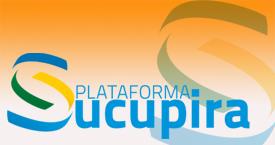Submissions
Submission Preparation Checklist
As part of the submission process, authors are required to check off their submission's compliance with all of the following items, and submissions may be returned to authors that do not adhere to these guidelines.- The work is original and unpublished — that is, it has not been published in any other printed or digital vehicle, such as a collection book, periodical, magazine, magazine, blog, personal or academic social network, even in preprint format — and not is subject to evaluation with a view to publication in another journal; otherwise, it must be justified in "Comments to the editor".
- No other person worthy of authorship of the work was omitted from the submission, according to the editorial criteria for attributing authorship according to the CRediT Taxonomy.
- There are no references or information that could reveal the identity of the authors in the text of the work or in the metadata of the submitted file.
- The person responsible for the submission correctly filled out all fields of the submission form (metadata), not forgetting to record the information of all authors of the writing, notably the mini-biographies, e-mails and access links to the personal pages in the Currículo Lattes (if existent) and ORCiD platforms, respectively, in the "URL" and "ORCiD" fields of the metadata form.
- URLs for references were provided when possible.
- A declaration signed by the author responsible for the submission, in ".pdf" format, available in the "Submissions" or "Guidelines for Authors" section, was submitted together with the work, but in a separate file.
- The most appropriate section for the work was chosen.
- The submitted text must follow the style standards and bibliographic requirements described in Guidelines for Authors, on the About the Journal page.
Articles in Continuous Flow (Rolling Pass)
Articles received in continuous flow
Resenhas Críticas
Seção destinada ao recebimento de resenhas críticas.
Translations
In the "Translations" section, articles, reviews and other scientific works originally published in other languages will be published in the Portuguese language.
Articles for the "Dossier Ecology, Unionism, and Labor Law"
The Labor and Human Development Law Journal - Journal of the Regional Labor Prosecutor's Office of the 15th Region makes public the Call for Papers for the special section "Dossier Ecology, Unionism, and Labor Law", which will be part of volume 7, set to be published from January 2024.
The Dossier will be coordinated by the invited Doctors Gustavo Seferian (UFMG-Brazil) and Michael Löwy (CéSor/EHESS/CNRS-France), who have honored RJTDH by accepting this responsibility. Check out the invitation prepared by the Coordinators:
We invite the entire scientific community to submit papers to the special section "Dossier Ecology, Unionism, and Labor Law" of volume 7 (2024) of the Labor and Human Development Law Journal - Journal of the Regional Labor Prosecutor's Office of the 15th Region, which will address labor relations at their intersection with ecological political agendas. In a context marked by the crisis of capitalist, industrial, modern, and Western civilization, with clear climatic and environmental contours, urgent measures aimed at stopping the destruction promoted by a system exclusively oriented towards profit maximization are urgently needed. However, the responses to the global climate emergency are predominantly framed within the perspective of an "impossible green capitalism", to use Daniel Tanuro's expression, which is incapable of addressing the ecological crisis, not only because it disregards environmental inequalities - perceived from the perspectives of class, gender, race, and national origin -, but also because it is inscribed within the narrow limits of the capitalist mode of production, responsible for the ongoing catastrophe. Aware of the indispensable role of the organization of workers, including their class unions, in building alternatives for life on planet Earth, the tactical struggle for rights that take into account the urgency of confronting the climate crisis emerges as a subject of utmost relevance in contemporary times, with a view to constructing a human sociability harmonious with the rest of nature.
The "Dossier Ecology, Unionism and Labor Law" will, in its editorial line, feature articles dealing with theoretical issues and case studies, encouraging multidisciplinary approaches, advancing beyond the "narrow bourgeois legal horizon", as defined by Marx in his Critique of the Gotha Programme. Articles addressing labor mediation between humanity and non-human nature; socio-environmental history of Labor Law and union struggles; experiences of workers' mobilizations for environmental justice; rural labor and legal regulation; labor inspection body and workplace environment; unionism and energy transition; inequalities and climate injustices in the world of work; Labor Law, indigenous and traditional peoples; religion, ecology, and labor; limits of the agenda of the WTO and ILO's "Green Jobs"; labor relations in the "Green new deals" and ecossocial pacts of the South; environmental education and unions; reduction of working hours and ecology; unionism and conversion of environmentally destructive industries; union struggles, socio-environmental issues, and free public transportation; degrowth and labor regulation; relations between Labor Law and Environmental Law; ecossocialism and Labor Law; job security for workers in ecocidal sectors, destined to diminish or disappear: coal mines, oil wells, nuclear energy etc.; ecofeminisms and labor regulation; Labor Law and (neo)extractivism; labor relations and environmental racism; among others, are expected.
Conditions and Deadline for Submissions
Unpublished scientific articles that accurately observe the submission conditions described in the Submission and Author Guidelines sections accessible on the RJTDH website will be accepted for evaluation.
The submission period will begin on January 1st, 2024, and end on July 31st, 2024.
The submitted writings will be subject to the continuous editorial flow of the Journal - that is, publication occurs subsequent to the approval of the article, before the closure of the special section. The double-blind review system by peers holding the same academic qualification or higher as the most senior author of the submitted work will generally be observed.
Artigos para o Dossiê “Significado e impactos da reforma trabalhista"
A Revista Jurídica Trabalho e Desenvolvimento Humano – Revista da Procuradoria do Trabalho da 15ª Região (RTDH) e os Professores Doutores José Dari Krein e Marcio Tulio Viana convidam a comunidade acadêmica nacional e internacional à submissão de trabalhos para compor o dossiê “Reforma trabalhista: significados, impactos e alternativas”, publicação temática voltada à análise dos efeitos da Reforma Trabalhista (Lei nº 13.467/2017) sobre as condições materiais e jurídicas de trabalho, bem como sobre as instituições públicas, o sindicalismo e a negociação coletiva e outras vertentes ligadas ao fenômeno laboral. Os artigos submetidos deverão apresentar afinidade com ao menos uma das seguintes áreas temáticas:
- (In)Constitucionalidades, (In)Convencionalidades da Reforma Trabalhista;
- Interpretação da Reforma Trabalhista conforme a Constituição Federal brasileira e as normas internacionais de Direitos Humanos;
- Impactos sobre as políticas públicas sociais, especialmente no âmbito da Seguridade Social;
- Formas típicas e atípicas de contratação após a Reforma Trabalhista, nessas incluídas a terceirização;
- Reforma Trabalhista e instituições públicas dedicadas às relações de trabalho;
- Efeitos da Reforma Trabalhista sobre a Saúde e Segurança do Trabalho (SST);
- Desigualdade de gênero e raça no mercado de trabalho pós-Reforma Trabalhista;
- Direito coletivo reformado: sindicalismo, diálogo social e prevalência do negociado sobre o legislado;
- Alterações da Reforma Trabalhista no âmbito do Processo do Trabalho;
- Análise comparativa dos efeitos das experiências internacionais reformistas em matéria trabalhista.
Para a composição deste Dossiê, a RTDH interessa-se, preferencialmente, por artigos que cujo conteúdo supere a mera análise diagnóstica, de modo a contemplar uma reflexão propositiva acerca dos efeitos fáticos e jurídicos da Reforma Trabalhista.
Os escritos poderão ser submetidos até o dia 15 de maio de 2019 (impreterivelmente), por meio do campo geral de submissões da plataforma eletrônica acessível em revistatdh.org. Todas as submissões serão objeto de apreciação e revisão em método duplo cego de avaliação (double blind view), após o que comporão o segundo volume da RTDH, previsto para ser publicado em junho próximo.
Clique aqui para acessar as Diretrizes para Autores, a serem observadas, juntamente com o adequação à política editoria da RTDH, como condição de avaliação da submissão, solicitando-se especial observância às exigências de ineditismo e de titulação mínima de doutor(a) para ao menos um dos autores.
A Equipe Editorial.
Dossier "Covid-19 and the World of Work"
Among the various effects of the Covid-19 pandemic, one is particularly striking: the transformation in labour relations. The global aspect of the disease causes governments to build the health emergency framework differently, allowing comparisons, historical analysis and critical approaches. In the Brazilian case the repercussion of Covid-19 was evident: provisional measures were issued, courts were called to deliberate on emergency powers, there was a conflict of orientation among the various entities of the federation. Labor relations were directly affected. Structural problems were emphasized. There were mass layoffs, as well as the precariousness of a large proportion of workers. It is around this theme that the dossier for the next issue of the Journal is organized. Fulfilling its mission of providing a space for quality reflections on the world of work, the Labor and Human Development Law Journal invited PROFESSOR DOCTOR CRISTIANO PAIXÃO (University of Brasilia and Federal Labor Prosecutions Office) to organize the dossier "Covid-19 and the World of Labor".
Artigos para o número inaugural da Revista TDH
Artigos submetidos para compor o número inaugural da Revista Jurídica Trabalho e Desenvolvimento Humano, de acordo com o Call for Papers presente na capa da Revista.
Artigos em Fluxo Contínuo
Submissão de artigos em fluxo contínuo, conforme critérios delineados na seção Submissões.
Privacy Statement
The names and addresses given in this journal will be used exclusively for the services provided by this publication and will not be made available for other purposes or to third parties.














